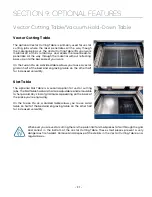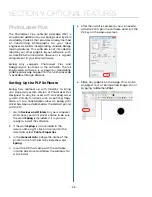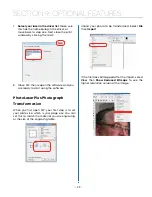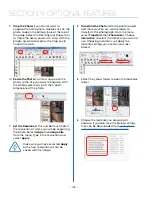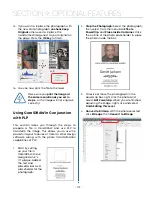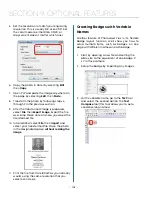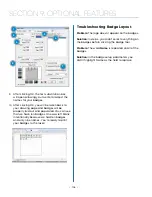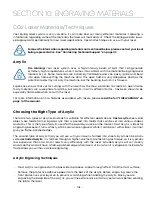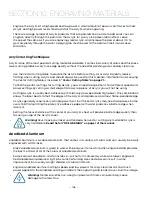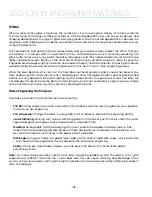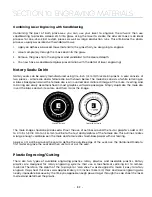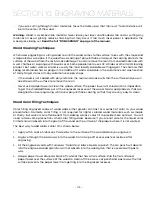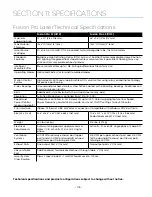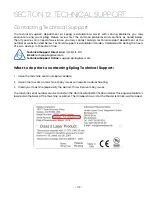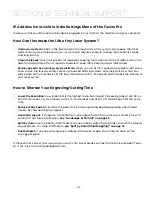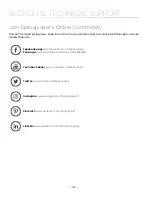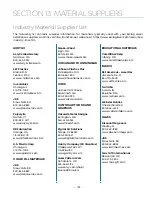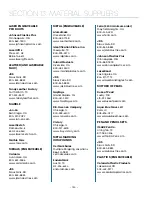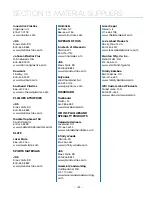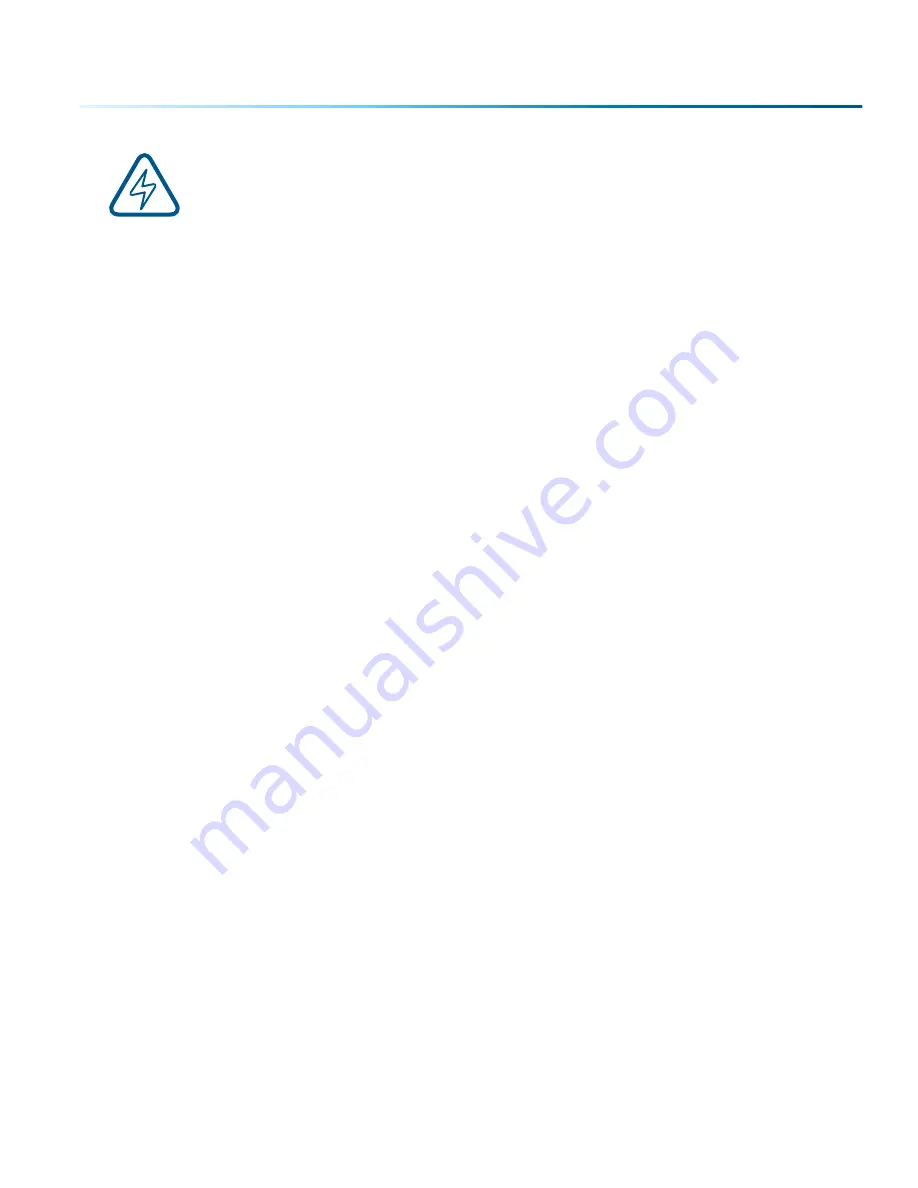
•
WARNING!
Do not engrave PVC (Polyvinyl Chloride). PVC will destroy the optics and
mechanics of your Epilog system. Cutting or engraving PVC will void your warranty. The
only way to find out if there is PVC in your plastic is to the check the manufacturer’s
Material Safety Data Sheet (MSDS).
Wood
Solid Wood
Wood is by far the most laser friendly material available because it can be engraved or cut very easily.
When engraved, lighter colored woods like Cherry or Maple produce very nice contrast where the laser
burns away the wood. This high visual contrast is what makes lighter woods so popular when combined
with a laser. There are many types of other wood products that are designed for use with the laser and
many more that are waiting to be discovered by you.
Every type of wood has its own characteristics. Some wood is denser than other wood, with the denser,
harder woods requiring more laser power to cut or engrave. Epilog recommends that when working
with wood other than the ones listed in this section that you investigate the engraving and cutting
characteristics before committing to use. There are woodworking shops in nearly every large city that
will have a wealth of information on nearly all woods. If you have access to the Internet, search on wood
to see what you find.
• The most common woods used with the laser are Cherry, Walnut, Maple, Alder, & Oak. These woods
are considered hard woods, and have grains that work well with lasers.
• Grain can very greatly in density. Cherry, Alder, Walnut & Maple all have fairly little veins of grain
in them, while Oak has medium to large veins in it. For example: If a large box was engraved
into a piece of Cherry and a piece of Oak, the box engraved into the Cherry would have a very
uniform appearance, the area engraved or the background would be smooth with little variation
in height. The Oak on the other hand would vary greatly in height and have a very non-uniformed
appearance.
• Cherry and alder are the most popular woods for engraving. The light, red color of these two woods
provides an excellent contrast when engraved.
• Engraving bare wood
: When engraving bare wood, the smoke and debris produced while engraving
can become embedded into the grain of the wood. To reduce this effect, always engrave with the
Bottom-Top setting in the driver.
• Engraving stained wood:
A stained wood is preferable for engraving because excess smoke and
debris can be wiped off the surface of the wood after engraving with water.
Manufactured Wood Products
When choosing a manufactured wood product for engraving and cutting, we have found MDF to be
vastly superior to plywood when working with a CO2 laser. Since plywood is constructed of layers of
wood glued together and the grain of the wood chips in the plywood run in different directions, it is
difficult to obtain a consistent depth when engraving. Air bubbles within the plywood cause problems
because they severely disrupt the laser beam when cutting. Because of the glue, air bubbles and other
- 111 -
SECTION 10: ENGRAVING MATERIALS

